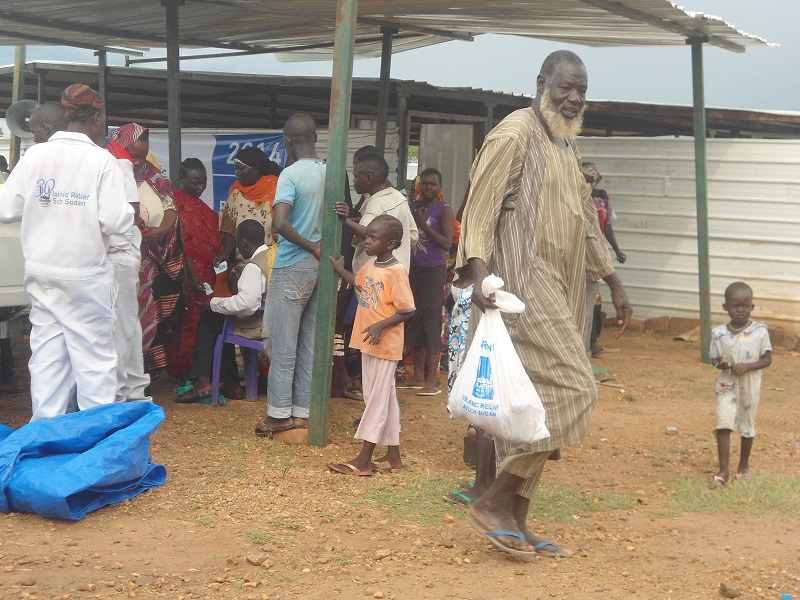Jonglei State has the highest number of internally displaced people and the highest level of food insecurity and malnutrition in famine-threatened South Sudan, according to a joint assessment by HelpAge International and Islamic Relief Worldwide.
As fighting rages across the country, 1.3 million people remain internally displaced. According to a recent UNOCHA report, there are about 790,000 displaced people in Jonglei State alone. Of these, it is estimated that at least 63,000 are older men and women.
The joint assessment shows that the most vulnerable people have been hit the hardest by the first major crisis since South Sudan became the world’s newest independent nation. Older people have found it difficult to flee due to mobility problems and many have been killed as a result.
Food is scarce and the future uncertain
Food is becoming scarce as stocks have been exhausted, looted or shared amongst vulnerable communities. Many people are still afraid to cultivate their land because they are uncertain about the future, forcing even those that have returned home into dependency on government rations.
“We just want peace to come so that we can go back to our ways, like the cultivation we used to do,” says Akur, an older woman living at Luedir Village in Bor. “At the moment, we are afraid to cultivate because we are not certain about the future. If there is peace, we would cultivate our farms.”
Increasing health risks for affected families
Waterborne diseases from contaminated water are an increasing risk, particularly as 80 per cent of the population are thought to depend on water from boreholes – many of which have been destroyed.
Crowded conditions, shared facilities, open defecation and poor waste management remain major problems within the refugee site at Bor. Over 60 people share one latrine, which are often dug close to shelters. Older people and people living with disabilities are finding toilets difficult to access.
“I just want to go back home,” says Peter*, an older man at the UNMISS Bor Protection of Civilians camp. “At least when at home, I am able to cultivate some crops or even look after my livestock.”
Acute respiratory infections, communicable diseases, diabetes, and high blood pressure, are the most common ailments affecting older men and women. Many health facilities have been destroyed, while those remaining do not have enough medical stocks.
The lack of psychosocial and counselling services has been identified as a significant issue, as rape has been reported among both young and older women – in some cases, used as a tool for survival to access passage or safety.
Greater support for humanitarian intervention is required

Islamic Relief’s East Africa Regional Director, Yusuf Ahmed, says: “The situation in South Sudan is amongst the most grave in the world today. Millions face starvation, and many have been driven from their homes. Jonglei is one of the worst affected areas.
“Despite the scale and depth of the crisis, humanitarian programmes remain hugely underfunded. Much more is needed to enable organisations like Islamic Relief and HelpAge to get vital aid to those that need it the most.”
“Older people are often forgotten in emergencies. There is need for interventions that cater for older people in such situations,” says Prafulla Mishra, HelpAge International East, West and Central Africa Regional Director.
Responding to the crisis
HelpAge International is providing items such as blankets, mosquito nets, mattresses, plastic mats and washing soap to older people who have been displaced by the conflict in Juba. HelpAge is also offering Helping Older People in Emergencies training for humanitarian agencies in Juba, aimed at assisting them in ensuring that their programmes include older people; and that they develop an understanding of how to put age-sensitive programming into practice.
Islamic Relief is delivering urgent aid in South Sudan, with emergency teams responding since the outbreak of fighting in December 2013. Our relief effort includes distributing food and essential medical supplies and mosquito nets – as well as hygiene kits and shelter supplies. Islamic Relief has also constructed wells, latrines and bathrooms.
* Name changed for protection purposes
Support our emergency response to the deepening crisis: Donate to our South Sudan appeal today.
Donate









